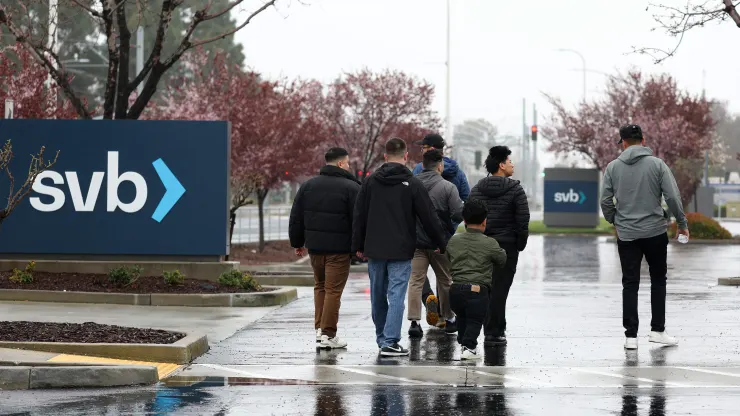|
Getting your Trinity Audio player ready...
|
Shares in Silicon Valley Bank (SVB), a pivotal lender to technology start-ups, plummeted on Thursday after it announced a $2.25 billion share sale to bolster its finances. The bank lost around $1.8 billion when it offloaded a portfolio of assets, mainly US government bonds.
As a result, the bank saw its largest one-day drop on record, with shares falling by more than 60% and another 20% in after-hours trade. The announcement caused a knock-on effect, with the four largest US banks losing more than $50 billion in market value. Bank shares in Asia and Europe also fell sharply on Friday.
Some start-ups that have money deposited in the bank have been advised to withdraw their funds. Hannah Chelkowski, the founder of Blank Ventures, a fund that invests in financial technology, said she advises companies in her portfolio to do so. She described the situation as “wild” and noted that SVB is “the most start-up friendly bank” that has supported start-ups so much through Covid. She added, “It’s brutal.”
SVB is the banking partner for nearly half of US venture-backed technology and healthcare companies that were listed on stock markets last year. The bank is a crucial lender for early-stage businesses.
The wider market has concerns about the value of bonds held by banks as rising interest rates make those bonds less valuable. Central banks worldwide, including the US Federal Reserve and the Bank of England, have sharply increased interest rates to curb inflation.
Banks tend to hold large portfolios of bonds and are sitting on significant potential losses. The fall in the value of bonds held by banks is not necessarily a problem unless they are forced to sell them. However, if lenders like Silicon Valley Bank have to sell their bonds at a loss, it could impact their profits.
Ray Wang, founder, and chief executive of Silicon Valley-based consultancy Constellation Research, said, “The banks are casualties of the hike in interest rates… Nobody at Silicon Valley Bank and in a lot of places thought that these interest rate hikes would have lasted this long.
And I think that’s really what happened. They bet wrong.” Russ Mould, investment director at AJ Bell, said the ripple effect of the problems at SVB showed that these events “often hint at vulnerabilities in the wider system”.
